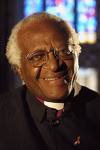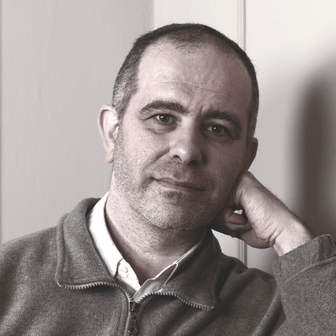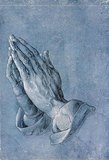Desmond Tutu

Nobel Prize Winner for Peace for his commitment in
favour of human rights and against racism, Desmond Tutu was
president of the Truth and Reconciliation Commission instituted by
the government of South Africa to favour national reconciliation
and to throw light on the violation of human rights committed from
1960 to 1993 during the apartheid regime (see the "Truth and
Reconciliation Commission in South Africa" at the section
Experiences of Non-Violence).
His story meets with that of Nelson Mandela, symbol for the South
African population of the achievement of liberty and equality.
Speaking of Nelson Mandela, he said: "Nelson Mandela spent
twenty-seven years of his life in prison. Those twenty-seven years
were the flame that hardened his steel, removing the slags. And the
sufferance he endured in the interest of other people gave him the
authority and credibility that he would otherwise not have had.
True leaders must sooner or later convince their followers that
they did not enter the fray for personal interest, but for the love
of others. What more than sufferance can be more convincing
testimony? Would Nelson Mandela have been able to carve out a place
for himself in history as a great political and moral leader
without that sufferance? I doubt it."
Desmond Tutu was born in Klerkdorp, Transvaal, South Africa in
1931. Twelve years later he moved to Johannesburg where he finished
his high school studies and began teaching in a primary school of
one of the shantytowns of the city.
He married Leah who bore him four children. In the meantime, he
started his theological preparation, and in 1961 was ordained
priest. After some years studying in England, he took up teaching
theology in a number of universities in his country. In 1975 he
became the first Black to be appointed dean of Johannesburg, and
two years later bishop of Lesotho.
Meanwhile, amid public opinion, in response to the repressive
actions of the government against protests in favour of social
equality, and on the uplift of black consciousness - movement of
emancipation of the black population created in the academic world
and lead by Steve Biko - public protest was growing on the streets.
The most dramatic moment took place in June 1976, when a pacific
protest, after the death of a young boy, turned into the massacre
of 500 people. As a result, steps were taken against the very
Christian organisations that defended the "black consciousness"
movement and that supported their claims with the rereading of the
Bible from a point of view of the needs and realities of the
Blacks, leading to the so-called black theology of which our author
was the spokesperson : "[…] Black Theology is concerned with
this part of humanity, with these men and women who have acquired
consciousness of their value as people, who realise they do not
need to apologise for their existence, who believe they have an
experience qualitatively different to the experience of others, and
that that experience needs to be studied and understood in relation
with what God revealed about himself and about his son Jesus Christ
[…]".
It was at this delicate stage that the Anglican bishop Tutu assumed
the position of secretary-general of the South African Council of
Churches (SACC).
In 1979 he supported a Civil Disobedience Campaign of the Blacks of
Africa. From that moment on, a vast operation of pressure took off
amid the international community and of complaint against the
apartheid regime which was compelling blacks to live in inhumane
conditions. This, of course, cost him numerous restrictive measures
from the government that even goes as far as to declare him
subversive; he thus responded: "With all due respect, all the
commissioners were people who benefit daily from the
socio-political system that we want to change".
In September 1984 another protest breaks out in the ghetto of
Soweto, where he had encouraged his people at length to not give in
to priestly discriminations; the response of the then prime
minister Botha remained the same. In the same year, he was awarded
the Nobel Peace Prize which enabled him to put forward to the
government more visible requests in the direction of social and
political equality in a democratic country.
With the institution of the Republic of South Africa (1994),
Desmond Tutu continued his pastoral activity, not hesitating to
make his voice heard also at political levels.

Ciao,
mi chiamo Stefano.
Piemonte Sacro è la mia passione dal 2001.
AIUTA il progetto Piemonte Sacro a crescere
DONA SOLO 2 euro! Te ne sarò GRATO .




